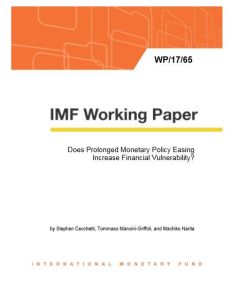
Read or listen offline
Recommendation
The Federal Reserve found itself between a rock and a hard place following the 2008 financial crisis. The central bank’s unusual actions and extraordinary monetary policy accommodation no doubt helped prevent a greater economic calamity, but there is some question about whether the Fed may have also unwittingly stoked financial institutions’ risk-taking tendencies. Economists Stephen Cecchetti, Tommaso Mancini-Griffoli and Machiko Narita’s overview of whether financial institutions have taken on excessive debt in response to the availability of easy money sheds some much-needed light on this important issue, although their report does not come up with any definitive conclusions about the impacts of heightened risk-taking. getAbstract suggests this succinct, topical report to policy experts, economists and financial services professionals.
Take-Aways
About the Authors
Stephen Cecchetti is a professor at Brandeis International Business School. Tommaso Mancini-Griffoli and Machiko Narita are IMF economists.



















Comment on this summary or Start Discussion